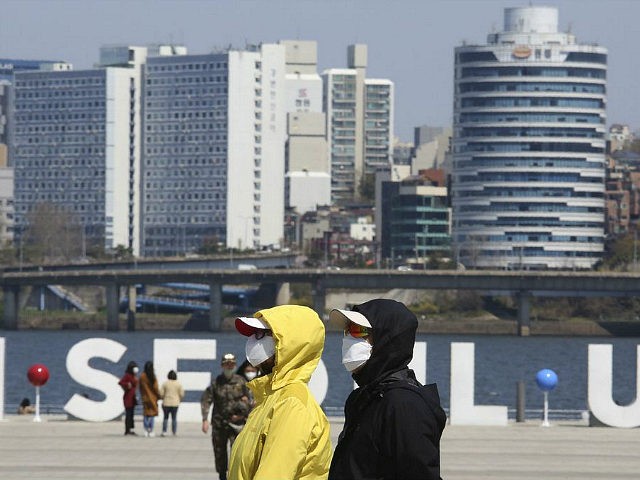South Korean health officials reported 47 of the 61 new coronavirus infections detected on Thursday came from overseas. Twenty of them were sourced to local construction workers who recently worked in Iraq.
“We are getting reports that cluster infections have occurred in the Middle East region, especially around construction sites in Iraq. We think our people working at Iraqi construction sites may have been exposed to the virus,” said senior South Korean Health Ministry official Yoon Tae-ho.
According to Yonhap News, 34 South Korean construction workers returning from Iraq have tested positive for the Wuhan coronavirus. Officials diagnosed 28 of them at airport quarantine checkpoints upon arrival in South Korea. All of them traveled on chartered flights that connected through Doha, Qatar, because Iraq’s international airport is currently shut down. South Korean health officials doubted any coronavirus tests were performed before the passengers boarded the charter planes.
“The virus-infected workers all reportedly worked in Karbala, central Iraq. More than 680 South Koreans, including workers from major builders like Hyundai Engineering & Construction Co., are reportedly staying there for construction projects,” Yonhap News noted.
Voice of America News (VOA) reported on Tuesday that coronavirus infections have also been detected on U.S. military bases in South Korea and Japan, with at least 34 American service members and contractors testing positive over the past two weeks when they arrived in South Korea.
“Upon arrival in South Korea, all U.S. troops and affiliated individuals are required to undergo COVID-19 testing and must enter quarantine or isolation for 14 days depending on the result. They must then test negative at least once before being released,” VOA explained.
Some South Korean officials worried that coronavirus infections among U.S. service personnel could affect military readiness, and South Korean civilians living near bases where Americans are stationed have “expressed concerns and complaints several times about being exposed to the virus,” as one epidemiologist put it. There has been some talk of postponing or canceling upcoming military drills to reduce the risks of infection.
On the other hand, VOA noted the U.S. military in South Korea “has been praised for its quick and effective response to the virus.”

COMMENTS
Please let us know if you're having issues with commenting.